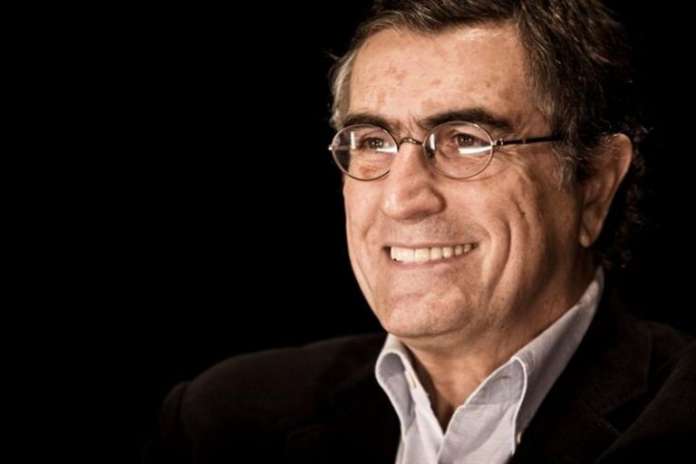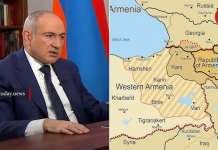By Andrew published in The Armenian Mirror-Spectator
ISTANBUL (Al-Monitor) — Turkish authorities banned the commemoration of the 1915 Armenian Genocide for the second year running Monday in a decision condemned as “unacceptable” by organizers.
The blocking of a memorial event in Istanbul came as issues affecting Turkey’s minorities took hold ahead of next month’s elections, following opposition leader Kemal Kilicdaroglu’s declaration of his Alevi faith last week.
The April 24 Commemoration Platform condemned the move in a statement. “There is no reasonable justification for banning our commemoration this year, as it was last year,” it said.
“It is unacceptable to ban this event in a climate where racist meetings and demonstrations are freely organized, where those who continue to demonize the descendants of the Armenians and Assyrians who were killed in 1915 and continue to alienate minority communities with racist hate speech are walking around freely.”
The organizers said the event was banned by the Istanbul governor on the grounds that it was not “appropriate.”
Commemoration ceremonies to mark the genocide, euphemistically referred to as “the events of 1915” in Turkey, were publicly held between 2010 and 2019 and online during COVID-19 shutdowns.
The April 24 Commemoration Platform said an open discussion of the genocide is a “necessary step … for the construction of democracy, equality and fraternal coexistence,” without which “no democratic move can be permanent, no social relationship can be egalitarian.”
Many see the Turkish stance on the genocide as emblematic of its relationship with minority groups within its borders.
One such group is the Alevis, a religious minority that shares characteristics of Shiite Islam as well as other beliefs. Estimates of the number of Alevis in Turkey vary from 10 percent to 30 percent of the population due to the lack of official data on ethnicity and faith.
Alevis faced violent persecution during the Ottoman period and again more recently. Pogroms in Malatya, Kahramanmaras and Corum between 1978 and 1980 saw hundreds murdered by mobs. In 1993, some 37 mostly Alevi intellectuals were killed in an attack on a conference at a hotel in Sivas.
For decades Alevis have campaigned against discrimination, calling for their faith to be recognized by the state rather than being classed as a cultural community.
Kilicdaroglu, head of the Republican People’s Party (CHP) and the leading challenger to President Recep Tayyip Erdogan in the May 14 elections, released a video last week in which he proclaimed his Alevi background.
Many had believed acknowledging his identity would discourage conservative Sunnis from voting for him or the CHP and could even be used against him by his opponents.
In Wednesday’s video, which has been viewed nearly 30 million times on Twitter, Kilicdaroglu called for an end to division and equal rights for the minority group. Responding to his comments on Sunday, Erdogan questioned why Kilicdaroglu had drawn attention to his roots.
“Nobody asked this person about his faith, sect or disposition. Nobody exposed this person to any accusation based on these identities,” he told a rally in Sakarya, northwest Turkey. “We do not have a Sunni, Alevi or Shiite religion. Our religion has only one name and that is Islam. Our religious identity has only one name and that is being a Muslim.”
But during a trip to Adiyaman, one of the southern provinces hit by the Feb. 6 earthquakes, Kilicdaroglu’s Alevi affiliation seemed to have sparked discriminatory outbursts.
While Kilicdaroglu recited a prayer for the disaster victims at a cemetery on Friday he was heckled by a man who shouted, “This person does not know how to read Fatiha. Why are you having him read Fatiha?”
Later that day his entourage was attacked by a group of men while visiting a Muslim tomb near the town of Samsat. “We are Muslims,” one yelled as the men tussled with Kilicdaroglu’s bodyguards. “We don’t want you. Don’t come here. You are not the man of this place,” another cried.
Turkey’s approach to the atrocities of 1915, which emptied Anatolia of its Armenian population through massacres and forced marches into the Syrian desert, has endured as a point of contention in international relations.
Joe Biden was the first US president to recognize the genocide in 2021, when he equated it to the Holocaust.
On Monday he made a statement of remembrance of the genocide, prompting Turkish Foreign Minister Mevlut Cavusoglu to tweet, “Yet another attempt by political charlatans to distort history! … No one shall dare to lecture us on our history.”
Program on Sunday
Perhaps to beat this ban, members of the Turkish Green Left Party (YSP) organized a commemorative event in Istanbul’s Kurtuluş neighborhood on April 23. Green Left Party (YSP) candidate for parliament Hasan Cemal delivered remarks at the event, Armenpress reported.
Hasan Cemal is the grandson of Cemal Pasha, the Ottoman military leader and one of the organizers of the Armenian Genocide.
“My dear Hrant Dink’s pain brought me here. My dear Hrant Dink’s pain made me aware of the dear Armenian people’s pain,” he said, referring to Agos Editor-In-Chief who was assassinated in Istanbul in front of his newspaper’s office on January 19, 2007.
“My 2017 book is titled the Armenian Genocide of 1915, and I carried Hrant Dink’s pain during the writing of the book as well. I am here today to share the pain of my Armenian brothers,” he added.
The Sisli office of the party then released a statement.
“Societies built on animosity, hate and massacre, running away from the truth and afraid to face their past, cannot walk towards a beautiful future. Is it possible to live together peacefully in a country where a part of the society is constantly concerned over its safety? This country must now face its history. There must be an end to the policy of animosity and hate, and racism must not be tolerated,” reads a part of the statement, according to sendika.org.












